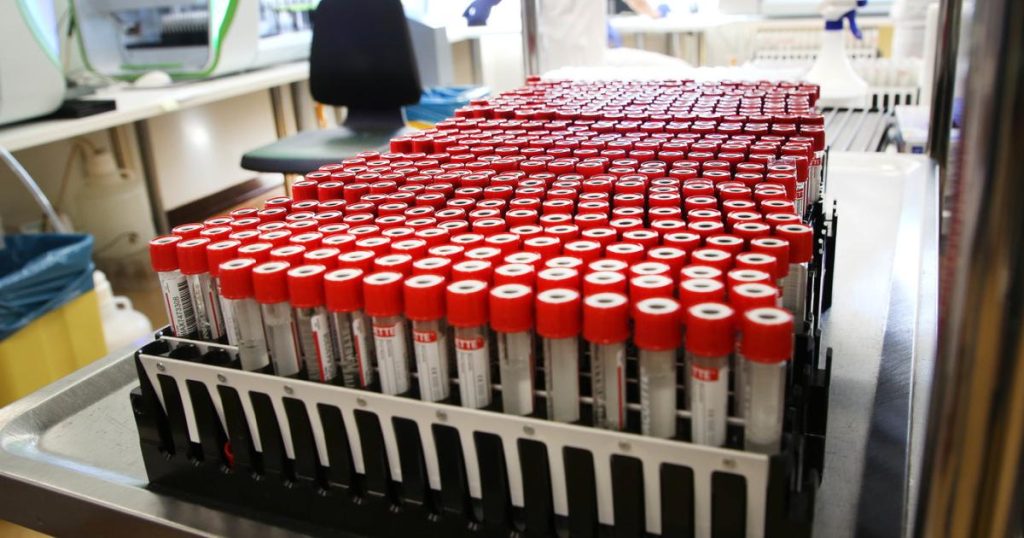In a current paper, experts from the research platform “Covid-19 Future Operations” called for more long-term, evidence-based planning for policy measures to control the pandemic. Its ending is unexpected, but subjectively it can take a back seat “if we usually take certain actions, similar to how we adjust our clothes to match the weather forecast, for example”.
Vaccination and regular PCR tests are essential for everyone.
“As part of the daily routine, the epidemic can lose control of politics, psychology and cognition,” wrote the team of experts, including political scientist Barbara Prinsak, Peter Klimeck from the Complex Science (CSH) Vienna, and Thomas Chebionka from the Institute of Graduate Studies (IHS). ) or the federal rescue leader of the Austrian Red Cross, Jerry Wojtek, belongs.
In times of high infection numbers, contact restrictions are important and sometimes necessary, according to an expert opinion paper. However, this step must always be understood and the psychological, social, economic and ethical implications must be systematically taken into account. Given the now high level of epidemic fatigue, it also needs as much planning as possible.
Mayors should motivate people to get vaccinated
In the experts’ view, it should be possible to increase vaccination rates while contact restrictions are still in place. For this purpose, mayors or people from the health professions should motivate them to get vaccinated. In addition, there is a need for proper communication of groups with little willingness to immunization or special vaccination offers for young people, for example.
In addition, there should be goals for the federal states when it comes to vaccinations. Experts are of the view that action is needed in light of the high incidence of schoolchildren, for whom there should be low-threshold information, vaccination offers and age-appropriate vaccination incentives (eg vaccination in unusual places).
In general, individual vaccination concerns should be approached sensitively and without polarization, and planned vaccination requirements should be well prepared and psychologically supported.
In the experts’ view, regular PCR testing of vaccinated and recovered people remains essential to break chains of infection early, break the tide of the epidemic, and thus prevent lockdown.
This requires a functional and comprehensive set of PCR tests, as in Vienna, where PCR tests for gargling can be done at home with “Alles gurglt” and offered in various stores. The goal is to create a nationwide 2G-plus system (vaccinated/restored with expiration date plus current PCR test) where everyone will perform PCR tests regularly regardless of their vaccination status.
Until capacities are expanded accordingly, priority should be given to schools, educational institutions, hospitals, the elderly and nursing homes. Access to cultural and recreational facilities (from cinemas to bars to a fitness studio) should be available only to vaccinated and convalescent people, depending on infection rate, with additional mask or PCR testing requirements. In addition, from the point of view of experts, greater emphasis should be placed on digital options for controls (digital green passport verification or quarantine monitoring).
Open schools need concepts
In the case of schools, given the psychological stress caused by the closure, even with a high incidence of cases, the question should no longer be whether they can remain open, but under what measures.
The security concept of the research platform includes three PCR tests per week for all students and teachers. In addition, quarantine measures for contact persons can be reduced by performing daily PCR tests for a week after a case in class.
Experts are also calling for a similar testing system for kindergarten, in which the sample can be taken with a “pacifier” instead of a rinse.
In the case of high accidents, (FFP2) masks must be worn throughout schools – as currently required. When measures are tightened, they should not depend on the coverage of intensive care units, but on the frequency of infection in the relevant age group.
In addition, possible packages of measures (such as introducing the Christmas holidays if accidents are still too high) should be announced in a timely manner to improve planning. In the workplace, the home office should be implemented wherever possible and the FFP2 mask requirements should be implemented consistently in workplaces indoors.
For medium or long-term planning (analysis of the effects of measures, ability to predict two to three months in advance), representatives of the research platform request the creation of a team of experts from different disciplines, who develop a step-by-step plan with binding threshold values for the measurements (related mortality). age on the rise in mental illness until unemployment and educational indicators).
At a scientific conference, measures could also be developed to prevent Austria from entering a similar situation in the fall of 2022 as it is now. This will also require comprehensive and high-quality data. In addition, the concept can only be effective in the long term if there is a greater focus on citizen participation (eg from immigrant communities, trainees, youth, etc.).

“Total coffee aficionado. Travel buff. Music ninja. Bacon nerd. Beeraholic.”








More Stories
Coral Seeding: Artificial Insemination Makes Coral More Heat Tolerant
Fear, Anger, and Denial: How People Respond to Climate Change – Research
LKH Graz: Using radiation to combat heart arrhythmias